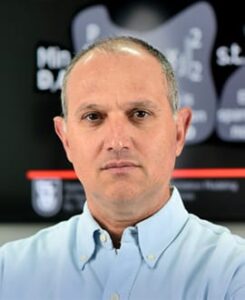
Image denoising – removal of white additive Gaussian noise from an image – is one of the oldest and most studied problems in image processing. An extensive work over several decades has led to thousands of papers on this subject, and to many well-performing algorithms for this task. As expected, the era of deep learning has brought yet another revolution to this subfield, and took the lead in today’s ability for noise suppression in images. All this progress has led some researchers to believe that “denoising is dead”, in the sense that all that can be achieved is already done.
Exciting as all this story might be, this talk IS NOT ABOUT It!
Our story focuses on recently discovered abilities and vulnerabilities of image denoisers. In a nut-shell, we expose the possibility of using image denoisers for serving other problems, such as regularizing general inverse problems and serving as the engine for image synthesis. We also unveil the (strange?) idea that denoising (and other inverse problems) might not have a unique solution, as common algorithms would have you believe. Instead, we will describe constructive ways to produce randomized and diverse high perceptual quality results for inverse problems.

Michael Elad
Speaker’s Bio:
Michael Elad holds a B.Sc. (1986), M.Sc. (1988) and D.Sc. (1997) in Electrical Engineering from the Technion in Israel. Since 2003 he holds a faculty position in the Computer-Science department at the Technion. Prof. Elad works in the field of signal and image processing, specializing in particular on inverse problems, sparse representations and deep learning. He has authored hundreds of publications in leading venues, many of which have led to exceptional impact. Prof. Elad has served as an Associate Editor for IEEE-TIP, IEEE-TIT, ACHA, SIAM-Imaging-Sciences – SIIMS and IEEE-SPL. During the years 2016-2021 Prof. Elad served as the Editor-in-Chief for SIIMS.
Michael received numerous teaching and research awards and grants, including an ERC advanced grant in 2013, the 2008 and 2015 Henri Taub Prizes for academic excellence, and the 2010 Hershel-Rich prize for innovation, the 2018 IEEE SPS Technical Achievement Award for contributions to sparsity-based signal processing; the 2018 IEEE SPS Sustained Impact Paper Award for his K-SVD paper, and the 2018 SPS best paper award for his paper on the Analysis K-SVD. Michael is an IEEE Fellow since 2012, and a SIAM Fellow since 2018